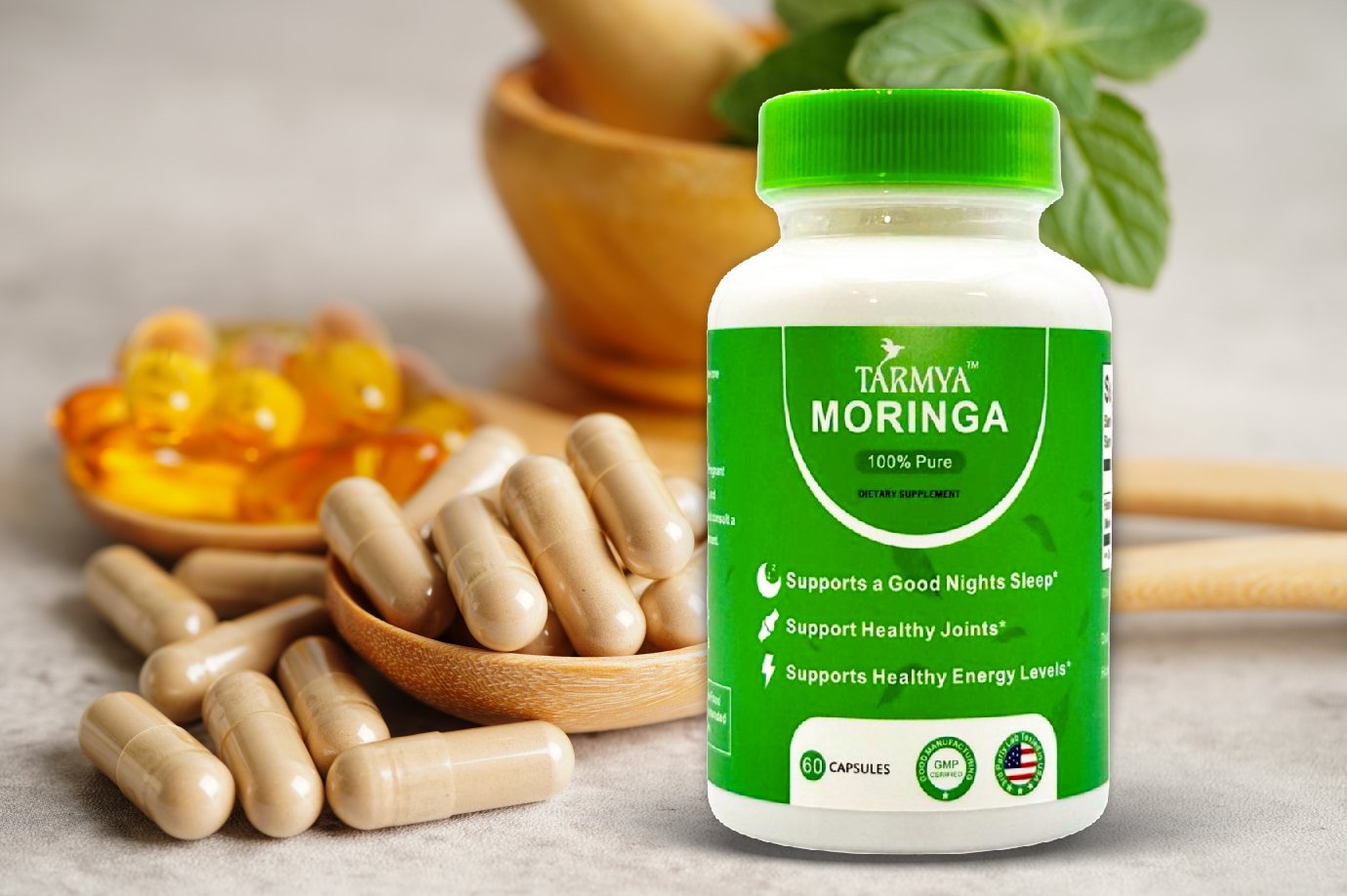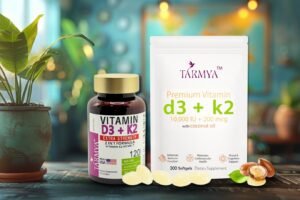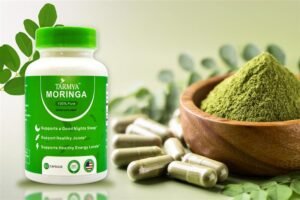When it comes to adopting a vegetarian lifestyle, one of the key considerations is ensuring your diet remains balanced and provides all the essential nutrients your body needs to thrive. While plant-based diets are rich in many vitamins, minerals, and fiber, there are times when supplementing your diet with vegetarian supplements becomes necessary. Whether you're …
When it comes to adopting a vegetarian lifestyle, one of the key considerations is ensuring your diet remains balanced and provides all the essential nutrients your body needs to thrive. While plant-based diets are rich in many vitamins, minerals, and fiber, there are times when supplementing your diet with vegetarian supplements becomes necessary. Whether you’re transitioning to a vegetarian diet, looking to optimize your health, or simply trying to find the best plant-based supplements, it’s essential to know how to choose the right ones for your needs.
In this ultimate guide, we will walk you through everything you need to know about vegetarian supplements, from the types available to how to choose the right ones and make sure you’re meeting your nutritional goals.
What are Vegetarian Supplements?
Vegetarian supplements are dietary supplements that cater specifically to people who follow a vegetarian or plant-based diet. These supplements are made from plant-derived ingredients and do not contain animal products such as gelatin, dairy, or eggs. Vegetarian supplements can provide the nutrients that are sometimes difficult to get from plant-based foods alone, such as Vitamin B12, Omega-3 fatty acids, and certain amino acids.
Vegetarian supplements come in many forms, including capsules, tablets, powders, and liquids. They are designed to support your health and well-being, filling any gaps that might exist in your nutrition. As plant-based diets exclude animal-based foods, it’s important to ensure that the body is still receiving all the essential nutrients it requires for optimal functioning.
Why do Vegetarians Need Supplements?
Adopting a vegetarian diet offers many health benefits, such as a reduced risk of heart disease, diabetes, and certain cancers. However, plant-based diets can sometimes lead to nutrient deficiencies, especially if not carefully planned. Certain nutrients are more difficult to obtain from plant-based sources alone, and this is where vegetarian supplements play an important role. Here are some key nutrients that vegetarians often need to pay extra attention to:
Vitamin B12
Vitamin B12 is primarily found in animal products, so vegetarians need to find plant-based sources or supplements to meet their needs. Vitamin B12 is essential for nerve function, red blood cell formation, and DNA synthesis.
Iron
Although plant-based foods like spinach and legumes contain iron, it’s not as easily absorbed by the body as the iron from animal products. Iron supplements can help ensure that vegetarians get enough of this important nutrient, which is crucial for oxygen transport in the blood.
Omega-3 Fatty Acids
Omega-3 fatty acids are essential for heart health, brain function, and inflammation regulation. Plant-based sources like flaxseeds, chia seeds, and walnuts contain ALA (Alpha-Linolenic Acid), but vegetarians may consider taking algae-based supplements to ensure they get the DHA and EPA forms of Omega-3.
Vitamin D
While sunlight exposure helps the body produce vitamin D, vegetarians living in areas with limited sunlight or those who don’t consume fortified foods may need to supplement with vitamin D.
Calcium
For vegetarians who do not consume dairy, ensuring an adequate intake of calcium from plant-based sources like fortified plant milks, tofu, and leafy greens is essential. Supplementation may be necessary if dietary intake is insufficient.
Zinc
Zinc is essential for immune function, protein synthesis, and wound healing. Vegetarians may have lower zinc intake due to the absence of animal products, and supplementation can be an option.
Protein
While plant-based sources of protein like beans, lentils, and quinoa are abundant, vegetarians who are highly active or who have higher protein needs might consider protein supplements such as pea protein or soy protein.
You may also like: How to Choose the Right Organic Supplements for Your Lifestyle
How to Choose the Right Vegetarian Supplements
Now that we know why supplements are important for vegetarians, the next question is: how do you choose the right ones? Selecting the right supplements involves considering several factors to make sure you are getting high-quality products that meet your specific health needs.
Consider Your Nutritional Gaps
The first step in choosing the right vegetarian supplements is to assess your diet. Are you getting enough Vitamin B12 from fortified foods or plant-based sources? Do you consume enough Omega-3 rich foods like chia seeds or flaxseeds? A nutritionist or dietitian can help you identify any potential nutrient deficiencies and recommend appropriate supplements. You can also perform a blood test to check for deficiencies in key nutrients like B12, iron, or vitamin D.
Choose Plant-Based, Cruelty-Free Products
Since you follow a vegetarian or plant-based diet, it’s important to select supplements that align with your ethical choices. Look for supplements that are labeled “plant-based,” “vegan,” or “vegetarian.” These products are made without any animal-derived ingredients, including gelatin (often used in capsules) and lactose (found in some powdered supplements). Be sure to check the ingredient list for non-vegan fillers or additives, such as shellac or animal-derived enzymes.
Check for Third-Party Testing and Certifications
Quality matters when it comes to supplements, especially since there’s no strict regulation over supplement production. Look for brands that undergo third-party testing for purity, potency, and quality. Certifications like USDA Organic, Non-GMO Project Verified, and NSF Certified for Sport can also give you confidence that the supplement meets high standards of quality and safety.
Opt for Supplements with Bioavailable Forms
Bioavailability refers to how easily your body can absorb and use the nutrients in a supplement. Some forms of nutrients are more easily absorbed than others. For example, plant-based iron supplements made from ferrous bisglycinate are more bioavailable than those made from ferrous sulfate. Similarly, choosing vitamin D3 derived from lichen (instead of D2 derived from yeast) can offer better absorption. Check the labels to make sure the supplements you are considering use the most bioavailable forms of nutrients.
Look for Minimal Additives
When shopping for vegetarian supplements, it’s essential to select products with as few additives, fillers, and preservatives as possible. Look for supplements that list natural ingredients and avoid those with artificial colors, flavors, and sweeteners.
Consider Your Health Goals
Your personal health goals should also guide your choice of supplements. For example, if you are focused on maintaining joint health, you might want to consider supplements with Omega-3 fatty acids and vitamin D. If you’re trying to build muscle mass or improve exercise recovery, protein supplements like pea protein or hemp protein could be beneficial.
Choose Sustainable and Eco-Friendly Brands
Sustainability is another key factor to consider, especially if you follow a plant-based lifestyle for environmental reasons. Many supplement brands are now focusing on reducing their environmental impact by using sustainable sourcing, eco-friendly packaging, and cruelty-free manufacturing practices. Research the brand’s commitment to sustainability to align with your values.
You may also like: Supercharge Your Health: How Ashwagandha, Ginger, and Sea Moss Work Together
Conclusion
Choosing the right vegetarian supplements is crucial for a balanced, plant-based diet. By understanding your nutritional needs and selecting high-quality, ethical supplements, you can effectively support your health and well-being. If you’re unsure, consulting a healthcare provider or nutritionist is a great idea. With informed choices, you can fully enjoy the benefits of a vegetarian lifestyle without compromising nutrition.





